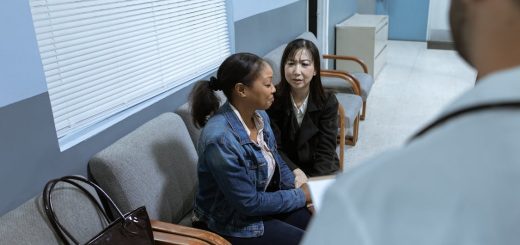Let’s Learn About Dementia
With age comes a tendency to forget things. As people get older, it often takes longer to remember names or facts. It takes more effort to tell a story or event. Verbal pauses occur more frequently when seniors need a few extra moments to remember what they meant to say or accurately recall a forgotten detail. Such periods of memory loss are not uncommon. Simple forgetfulness is part of most seniors’ lives.
But in some cases, memory loss is much more severe than merely forgetting the name of an acquaintance or having trouble remembering a recent conversation. For many Americans, recurrent memory loss may be the first sign of dementia. Dementia is diagnosed in about 35 percent of Americans under age 85 (the rate is higher in people over 85). Dementia impairs the affected person’s memory and reasoning skills, eventually making them dependent on a full-time caregiver who can provide constant medical care and supervision. Although the rate at which a person loses his or her ability to think and function independently varies, almost all people who have dementia eventually require some form of long-term care.
What is the cause of dementia?
Dementia is a condition that affects the brain’s ability to function normally. Several causes can be associated with the condition. Strokes, brain tumors, head injuries, and the natural decline of mental abilities over time can all lead to dementia. Dementia often indicates the onset of Alzheimer’s disease, a degenerative and eventually terminal condition that affects many older Americans. Vascular dementia, a form of dementia often associated with strokes, is common in patients with Alzheimer’s disease.
Fortunately, dementia can be effectively treated in some cases. Correctable problems such as an underactive thyroid (hypothyroidism), vitamin B12 deficiency, certain combinations of medications, and fluid in the brain (hydrocephalus) are just some things that can cause reversible dementia. In some cases, symptoms of depression may also be misdiagnosed as dementia. Unlike actual dementia, effective treatment for depression can alleviate such symptoms.
What are the symptoms of dementia?
The first noticeable symptom of dementia is usually memory loss. Although the person dealing with the condition may be aware that they are having trouble remembering things, family or friends are often the first to notice that something is wrong. As dementia progresses, a person finds it increasingly difficult to perform previously simple tasks, such as planning the day, making decisions, doing basic errands, and understanding or using certain words. Those with dementia often have trouble remembering what they are doing or feel lost in normally familiar places. Over time, people with dementia may forget how to perform routine, everyday behaviors. They may stop bathing, brushing their teeth, or combing their hair. People in advanced stages of dementia often lose the ability to recognize loved ones and care for themselves.
How is dementia diagnosed?
While there is no single medical test to determine if someone has dementia, doctors have several methods for making the diagnosis. Once a patient complains that they are suffering from dementia-like symptoms, a doctor will conduct a thorough medical examination.
He or she will review the patient’s medical and family history, often by talking to the patient’s loved ones, to determine if there is an inherited predisposition to suffer from dementia. The doctor will also usually perform a series of memory tests, such as asking the patient to remember the day or month or recall names or events that the patient should know. These tests are designed to determine if the patient’s memory capacity is normal or cause concern.
If, after examination, a doctor determines that the patient’s mental abilities are less than normal, the doctor will likely perform a series of tests to see if there is a reason other than dementia. He or she may run blood tests, check for thyroid problems, verify that the patient is not suffering from an infection, or perhaps even order an MRI or CT scan to rule out the possibility of a brain tumor or brain injury. Such tests can also reveal any shrinkage in the brain, indicating that dementia has indeed set in.
Can dementia be treated?
Most forms of dementia cannot be cured. But taking the proper medication and making wise lifestyle choices can help slow the process. People experiencing the early stages of dementia should seek advice from their doctor to determine which prescription medications are best suited to help them. A healthy lifestyle with adequate exercise, good nutrition, and active social life can also help slow the progression of dementia.



